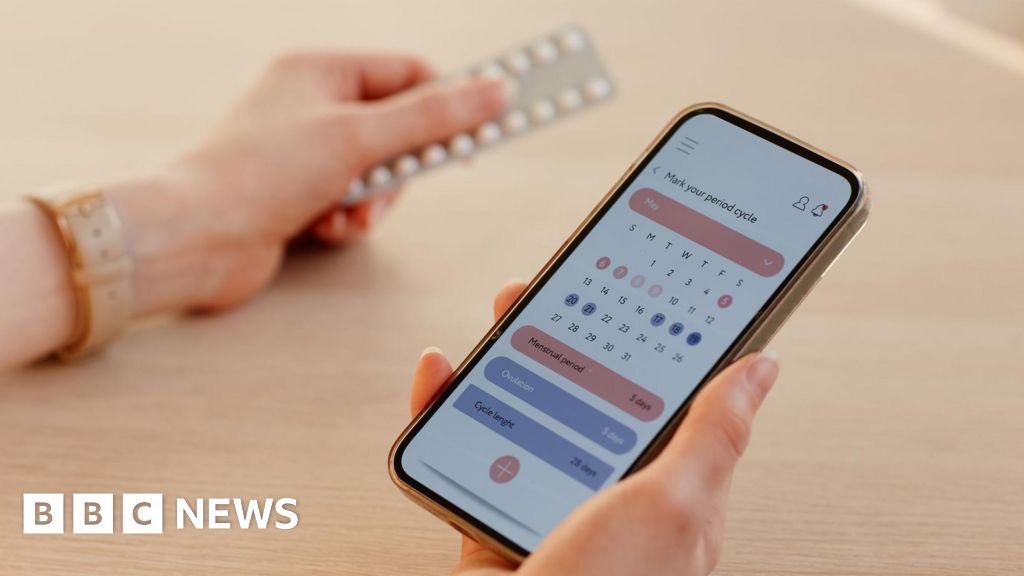There has been a rise in the proportion of women seeking abortions despite using “natural” methods to prevent pregnancy, like fertility tracking apps, a study in England and Wales suggests.
The data, published in BMJ Sexual and Reproductive Health, shows a “shift” in contraception use in the last five years, from “more reliable” hormonal contraceptives such as the pill, to “fertility awareness-based methods”, say researchers.
Hormonal methods, including the mini pill, fell from 19% in 2018 to 11% in 2023 among tens of thousands of women. Use of natural methods, meanwhile, increased from 0.4% to 2.5% – still a minority but a significant rise that “needs investigating”, say experts.
Fertility apps help track fertile days so a woman can know when she would be most likely to get pregnant each month or menstrual cycle.
Companies say they can be as much as 93% reliable when used correctly. However, they require people to take readings and control when they have sex, avoiding intercourse on days when the app tells them that they may be fertile.
The NHS says if you do not follow the instructions exactly, the method is only 76% effective. This means 24 in 100 women will get pregnant when tracking their fertility for a year.
Hormonal coils or implants, which do not rely on the user remembering to take them, are 99% effective.
For the study, researchers from University of Edinburgh compared data from the British Pregnancy Advisory Service for the periods January to June 2018 and January to June 2023 to see if contraceptive use changed.
As well as the shift to natural methods, more women reported using no contraceptive at all in 2023 – 70% compared to 56% in 2018. It is impossible to say what is driving the trends, but difficulty accessing sexual health services during the Covid pandemic may be a factor, say the study authors.
Abortion provider MSI Reproductive Choices UK told the BBC it too has seen more women using fertility awareness methods. Tanya Lane, contraception lead, explained that this could be a result of the rise in popularity of social media platforms like TikTok.
Long waits for appointments at GP surgeries and sexual health clinics could also be a factor. Paul Baraitser, medical director of the NHS-partnered free sexual health service provider SH:24, said there could be many reasons why women are switching, including concerns about future fertility and possible side effects.
Source link




